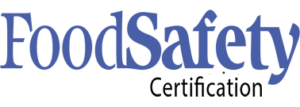
Food safety certification is one of the many components of the British Columbia Public Health Act on Food Premises Regulation. Handling food is one of the riskiest parts of this part of the industry, because anything taken orally can gravely affect the health of the masses. If food is not prepared, packaged, or transferred according to health and safety guidelines, it can cause widespread diseases when eaten by consumers.
The BS Public Health Act requires that all food establishments should have, during every shift, at least one worker trained in FOODSAFE. FOODSAFE is the name given to all training programs (and their equivalents) regarding food safety. There are typically two levels involved in this training program, one for first-line workers who handle food and the other for administrative staff of food establishments.
How to Register for Food Safe Level 1 or Level 2 With Victoria First Aid?
To register for either of these two food safe level’s use the following contact information:
- Website: http://firstaidcprvictoria.ca/food-safe-courses/
- Email: info@firstaidservices.ca
Friendly customer service representatives are available to take your call and help with any questions during regular business hours.
The WHO and food safety
Focus on food safety and foodborne zoonoses is one of the focal points of the WHO Strategic Plan for the period of 2013-2022. The plan involves food safety from in all levels, starting from farm production and the foodborne disease from improperly handled food products. The burden of foodborne diseases is heavy, because it threatens international public health security as food is imported and exported in and out of countries. The spread of contaminated food can go beyond the borders of one country as food and people who are infected with a foodborne illness enter and exit it.
Diarrheal disease – the most common manifestation of food poisoning, kills more than 2 million people all over the world each year. Large numbers of cases usually occur in poor countries where food safety is lacking and the health care system does not reach rural areas, arguably the areas that need health care the most. By enrolling in a class on food safety in Victoria, you are helping lessen this burden on the world’s population.
Getting your certificate
As previously mentioned, there are two levels in FOODSAFE training. The first is mandatory for food establishments, but the second is optional for the administrative staff if they want to take advanced training. Certificates are awarded to students who are able to complete the program. Certificates expire after five years of issuance. People whose certificates are about to expire can renew them after taking a refresher course.
FOODSAFE training
At our provider in Victoria, British Columbia, there are three food safety courses available: (1) food safe level 1, (2) food safe level 2, and (3) the refresher course.
FOODSAFE level 1 is an eight-hour program for first line service workers. First-line workers are those who handle food directly, such as cooks and servers. Even cashiers who handle food in fast food establishments are considered first line service workers. The first level training program focuses on handling, safety, and sanitation.
FOODSAFE level 2 is a twelve-hour program that requires students to take the first level course as a prerequisite before sign up. This training program is for administrative workers such as executive chefs and managers.
The refresher course is a program that focuses on updates in food safety, and on the essentials that are part of FOODSAFE level 1 training. It is three-hours long.
